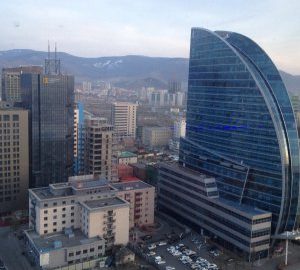A longstanding client of the firm which operates a company in Mongolia posed a simple question to our Mongolian lawyers, asking the best way under Mongolian Employment law to fire an employee who has not lived up to performance expectations. The question is interesting because it requires first determining what type of employee is to be terminated. In Mongolian law, not all employment relationships are equal. There are two difference kinds of employment in Mongolia each with different rules and different processes for termination of the employee.
The Labor Law of Mongolia provides for 2 types of employment: (1) Employment pursuant to an “Employment Agreement” and (2) Employment pursuant to an “Employment Contract”. It is important to understand that that these are two distinct types of employment under Mongolian law, subject to different rules, not simply a difference in translation.
In Mongolia, most employment relationships are pursuant to an Employment Agreement, which is basically described as an agreement to be employed for general purposes. While the actual role the employee performs may vary, no particular or unique skills are required on the part of the employee. This type of employment is defined by an Employment Agreement.
However, under the Mongolia Labor law, when an employer hires someone specifically for his/her high skills or unique talents an Employment Contract may be concluded, rather than a simple Employment Agreement. The Mongolian government puts out a list which sets out the positions subject to an Employment Contract. According to the list, an employer may conclude an Employment Contract with Directors, Chief Executive Officers, General Managers, Division (department) Managers, and Chief (head) of Divisions (departments). Other types of employees may only be hired pursuant to an Employment Agreement.
There are several differences between an Employment Agreement and an Employment Contract. Generally, an Employment Agreement for a permanent position is concluded for an indefinite term or if the parties mutually agree for a specified term. In the latter case, at the expiration of the term of the Employment Agreement if the parties do not propose its termination, and the employee continues to perform his/her work, the Employment Agreement is considered to be extended for the initial term.
Whereas, an Employment Contract may be concluded for up to a maximum of 5 years. When concluding an Employment Contract, among other terms, the parties must specify in the Employment Contract a detailed procedure for the evaluation of performance of the employee under the Employment Contract. When this is included in the Employment Contract, it is relatively easy to conclude upon evaluation of the employment contract whether the employee has sufficiently performed his/her duties. If the employee as performed sufficiently, the Employment Contract may be extended.
An Employment Contract must specify in detail all duties, responsibilities, rights, privileges, benefits of the employee, including a description of assets to be given under employee’s responsibility, the rules of possession, the use and disposition of such assets, final results to be achieved by the employee, the liabilities of the employee. Because under an Employment Contract the employer hires the employee specifically for his/her high skills or unique talents, such employee has more responsibility, accountability, rights, privileges and benefits than a “regular” employee employed under an Employment Agreement.


